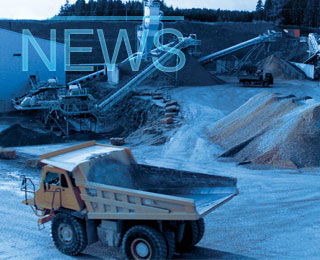This week Egypt-based ASEC-Group (part of Qalaa Holdings) informed of its agreement to sell off its partly-constructed Djelfa cement plant project in Algeria to investors for US$60m. The facility would have seen the addition of 3.5Mta of cement capacity added to the Algerian market, but the project had stalled when the banks refused to finance the project in 2012.
The aim of Qalaa Holdings appears to be to move its core business into other areas, perhaps as the margins in Algeria for cement are expected to tighten considerably, with downward pressure on prices as a plethora of new and efficient plants come on-stream. "This transaction further delivers on our strategy of divesting non-essential assets and significantly reducing financial risk by deleveraging at the holding and platform company levels." said Qalaa Holdings Chairman and Founder, Ahmed Heikal. "Our aim is to re-focus management bandwidth on holdings with high growth potential including energy, transportation and logistics, and mining."
Despite Qalaa Holdings withdrawal from the market, Algeria’s cement market can be viewed as one of the major growth regions of north Africa with cement production expected to reach 20Mt by 2018, according to Ministry of Industry claims.
Algeria’s cement projects boom
In July the LafargeHolcim's CILAS 2.7Mta plant at Biskra was officially launched. This is a joint venture between LafargeHolcim and the Souakri Brotherhood.
CEVITAL Minerals is a new player that is constructing a 4Mta plant at El Khroub with CESA-Cement Engineering SA providing the engineering consultancy, construction and commissioning. There are also plans for a similar sized plant for CEVITAL Minerals at Al Ksar.
Sarl Amouda Engineering is another new entrant that started work this January on an FLSmidth-supplied 2Mta plant Djebel Laaleg.
There are also expansion works nearing completion at Aïn Keira for Groupe Industrial des Ciments d’Algerie’s (GICA) subsidiary, Société des Ciments de Ain El Kebira, and another GICA subsidiary, Enterprise des Ciments et Derivés d’El Chellif’s Chelf plant, where Fives is commissioning a new 6000tpd line later this year. GICA’s Zahana plant in Mascara also has a contract with CBMI (Sinoma) for a new 4500tpd (1.5Mta) line to be completed in 2019 and the group’s Beni Sarf plant in Ain Témouchent is also being expanded by 2Mta.
GICA's strategy focusses on increasing its market share and the company has a group target production capacity of 18.5Mta by 2018. The state-owned business will open two more greenfield cement plants next year at El Kalaa (2Mta) and a 0.5Mta plant in Ain Salah (Tamanrasset). By the end-2018 GICA also aims to commission its new 6000tpd Sigus (Oum El Boughi) plant for its Société des Ciments Sigus subsidiary, which will be constructed by thyssenKrupp Industrial Solutions, while the 1Mta Saoura-Béchar plant, also for GICA, is similarly scheduled for commissioning by CBMI in 2018.
Capacity shelved
It has not all been a green light for new capacity expansions and the sidelined Djelfa plant site is not alone. The Honda Algerian Cement Co and PPC joint venture for the 2.2Mta integrated cement plant at Meghra has been shelved, according to ICR’s sources. But there is no news yet of the 1.5Mta plant that was being built at Adrar and was due to come online in the 1Q16, to be commissioned by China Triumph International Engineering.
Prices and imports
The impact of new domestic cement production on the market has already led to a sudden drop in imports. The Algerian Customs Department reports that cement volumes through the ports fell from 4.5Mt to 3.8Mt in the first eight months of the year, compared with the same period in 2015.
In addition, the new production capacity has been keenly felt on cement prices that have been starting to decline from their high-level of US$8.30/25kg bag in August 2016.
The markets of north Africa will be among those covered in Cemtech Middle East and Africa, to be held in February 2017 in Dubai, UAE - register at www.Cemtech.com

Cement prices recovering in China
Cement prices in China are rebounding strongly as producers seek to improve profitability follow...